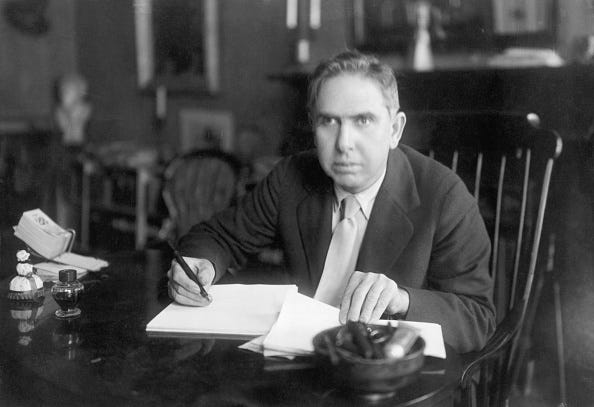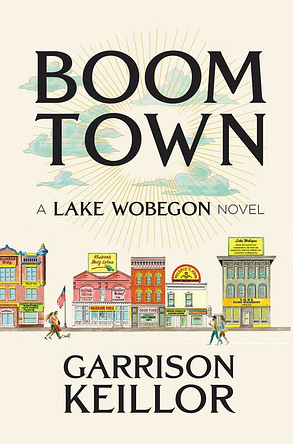|
 |
The Writer's Almanac from Tuesday, August 27, 2013
"Quite Frankly" by Mark Halliday, from Thresherphobe. © The University of Chicago Press, 2013.
ORIGINAL TEXT AND AUDIO - 2013
It's the birthday of Theodore Dreiser, born in Terre Haute, Indiana, in 1871. Dreiser was a novelist known for writing realistic books like Sister Carrie (1900) and An American Tragedy (1925). Dreiser got the idea for his novel An American Tragedy when he read a newspaper article about a man who had murdered his pregnant girlfriend to keep their relationship a secret. He followed the story of the trial and clipped articles from the paper when they were published. He didn't start to work on the novel until years after the real murderer had been executed in the electric chair.
An American Tragedy came out in 1925, the same year as Hemingway's In Our Time and Fitzgerald's The Great Gatsby. It was much longer than either of those books, and it was a difficult read, and yet it sold 13,000 copies in two weeks and went on to become by far the best seller that year. Though he lived another 20 years, Dreiser never published another novel in his lifetime.
And it's the birthday of travel writer William Least Heat-Moon, born William Trogdon in Kansas City, Missouri (1939). He was a university professor in the late 1970s when, within a few months, his life seemed to have fallen apart: He lost his teaching job because of declining student enrollment at his school, and his wife of 11 years separated from him. He decided to take to the open road and "live the real jeopardy of circumstance." Over the course of several months, he traveled 13,000 miles around the United States. The book in which he chronicled his adventures, Blue Highways: A Journey into America, was published in 1982 and garnered widespread acclaim. It spent 42 weeks on the New York Times bestseller list.
He said: "When you're traveling, you are what you are, right there and then. People don't have your past to hold against you. No yesterdays on the road."
It's the birthday of the philosopher Georg Wilhelm Friedrich Hegel, born in Stuttgart, Germany (1770). He started out as a philosopher of Christianity, and he was particularly interested in how Christianity is a religion based on opposites: sin and salvation, earth and heaven, church and state, finite and infinite. He believed that Jesus had emphasized love as the chief virtue because love can bring about the marriage of opposites.
Hegel eventually went beyond religion and began to argue that the subject of philosophy was reality as a whole. He wanted to create a philosophy that described how and why human beings created communities and governments, made war, destroyed each other's societies, and built themselves up to do it all over again.
What Hegel came up with was his concept of dialectic, which is the idea that all human progress is driven by the conflict between opposites.
At the time of his death, Hegel was the most prominent philosopher in Europe, and his school of thought gave rise to a group of revolutionaries, including Friedrich Engels and Karl Marx, who argued that the most important dialectic of history was between worker and master, rich and poor, and their ideas lead to the birth of Communism.
Hegel said, "Reason is the substance of the universe ... the design of the world is absolutely rational."
Be well, do good work, and keep in touch.®
Boom Town: A Lake Wobegon Novel by Garrison Keillor
With Boom Town, Garrison Keillor returns to his hometown of Lake Wobegon, which is in the midst of a rising economic tide driven by millennial entrepreneurs.
If you are a paid subscriber to The Writer's Almanac with Garrison Keillor, thank you! Your financial support is used to maintain these newsletters, websites, and archive. If you’re not yet a paid subscriber and would like to become one, support can be made through our garrisonkeillor.com store, by check to Prairie Home Productions, P.O. Box 2090, Minneapolis, MN 55402, or by clicking the SUBSCRIBE button. This financial support is not tax deductible.


